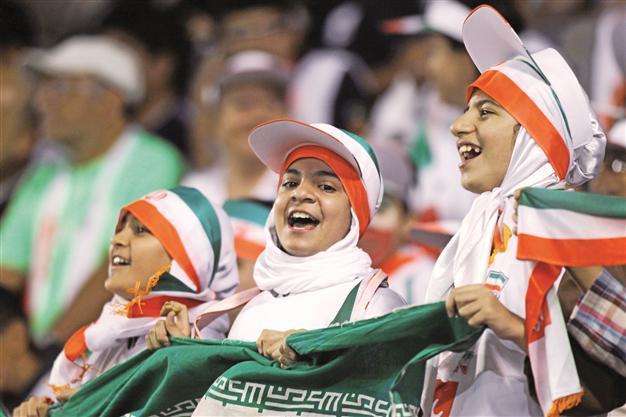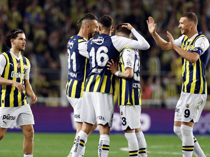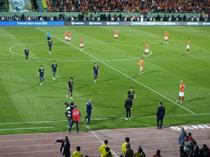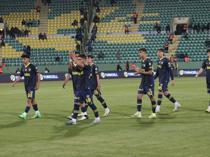Football threatens to spark protests as Iranians elect their new president
James M. DORSEY

Iranian fans celebrate their team’s win during a 2014 World Cup Asian zone qualifying football match between Qatar and Iran in Doha. Iran won 1-0 thanks to a goal by Reza Ghoochannejhad. AP photo
Iranian Supreme Leader Sayed Ali Khamanei has a lot on his plate these days with two of the most combustible events on the Iranian agenda coinciding: elections and World Cup qualifiers. Both have the potential of sparking anti-government protests.So far Khamanei can sigh a sigh of relief: This week’s election produced a reformist president who, if allowed to succeed, could reduce the risk of protest. Hassan Rouhani’s landslide victory in an election in which 80 percent of Iran’s 50 million voters cast their vote was an expression of just how widespread and deep-seated discontent is in the Islamic republic. Two days earlier Iran defeated Lebanon in an important qualifier for the 2014 World Cup. Both events came and went without incident but Khamanei’s immediate worries don’t end there. To be sure, Rouhani’s victory makes a repeat of the mass protests in 2009 that were sparked by allegations that then President Mahmoud Ahmadinejad’s winning of a second term had been fraudulent highly unlikely.
To ensure that optimism does not turn into frustration and pent-up anger, Rouhani will have to demonstrate quickly that he will be able to fulfill his election promises. These include improving relations with the international community to roll back harsh sanctions that have battered Iran’s economy, loosening the security apparatus’ tight grip on society and releasing political prisoners.
Rouhani will need time but together with Khamanei he will want to signal his ability in the coming days. Emotions are likely to be even more charged this week if Iran secures its ticket to the World Cup on June 18 in its match against South Korea. Iranians could well opt to celebrate a victory publicly and could continue to do so when the victorious team returns to Tehran from Seoul on June 21.
If the past is any yardstick, World Cup football victories are volatile moments in Iran. The potential of World Cup qualifiers to create opportunity for protest in Iran was demonstrated in 1997, 1998, 2002 and 2006.
Forbidden celebrations
In 1997, When Iran’s 1997 victory against Australia qualified it for the first time in two decades for the World Cup finals, men and women honked their car horns, waved Iranian flags and danced in the streets together to blacklisted music and sang nationalist songs as they did six months later when Iran defeated the United States. Some chanted, “Death to the Mullahs.” Some 5,000 women stormed Teheran’s Azadi stadium where the team was being welcomed in protest against their banning from attending football matches in defiance of calls in the media for them to watch the ceremony on television at home.
Bahrain’s defeat of Iran four years later in a World Cup qualifier again sparked mass protests against a backdrop of mounting disappointment with Khatami’s failure to implement change. Shouting anti-government slogans, football fans attacked banks and public offices and clashed with security forces.
Like in 1998, women celebrated football victories in 2002 and 2006 by discarding their veils and mixing with the opposite sex. When Iran’s chances were dashed by Bahrain, rumors abounded that the match had been fixed to ensure a loss so that people would not take to the street.
Iranian stadiums are likely to be a barometer of Rouhani’s success in office. Says an Iranian sports journalist: “In terms of freedom of expression, football stadiums are nearly as important as the Internet in Iran now. The protest is more secure there because the police can’t arrest thousands of people at once. State television broadcasts many matches live and the people use it as a stage for resistance. They’re showing banners to the cameras and chanting protest songs, which is why some games are broadcast without sound now.”
















